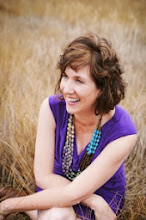News of Interest to Late-in-Life Moms November 24, 2008
News to know:
Some unaware of risks of delaying motherhood
Many women may not be fully aware of the potential consequences of waiting until later in life to have a baby, according to a British study reported in the journal Fertility & Sterility.
Researchers analyzed questionnaire responses from 362 women getting prenatal care and 362 women seeking fertility counseling at a university medical center. The researchers found:
~85 percent of women with fertility problems and 76 percent of pregnant women were aware that fertility declines between the ages of 30 and 40
~fewer than half in each group knew that age increases the risk of pregnancy-related diabetes and the need for a cesarean section
~only 53 percent of women with fertility problems knew that the chances of conceiving via IVF decline between the ages of 30 and 40
Fertility treatments linked to certain birth defects
Infants born as a result of assisted reproductive technology (ART) -- such as in vitro fertilization and the use of donor eggs -- are two to four times more likely to be born with certain types of birth defects than infants conceived naturally, according to a new study from the Centers for Disease Control and Prevention.
The individual risk for birth defects remain low, according to the study's lead author.
Children conceived using ART were found to have twice the risk of septal heart defects -- a "hole" in the heart -- more than twice the risk of cleft lip with or without cleft palate, and four times the risk of two gastrointestinal defects.
Autumn babies face greater risk of asthma
Research suggests babies born four months before the peak cold and flu season have a 30 percent higher risk of developing asthma.
Scientists studied the medical records of 95,000 infants and their mothers in the state of Tennessee. The study found all babies were at increased risk if they had bronchiolitis, a lung infection usually caused by respiratory syncytial virus (RSV), but autumn babies were at the highest risk.
Forward-facing strollers may harm babies emotionally
Due to the lack of face-to-face contact with parents, pushing babies in forward-facing strollers may harm them emotionally, according to a British study.
Children pushed in forward-facing strollers are less likely to laugh and otherwise interact with parents than children pushed in strollers that face parents, according to the study, which included almost 3,000 parents and babies.
Facing a parent while being pushed in a carriage gives an infant positive reassurance and reduces mental stress, researchers said.
 In Others' Words
In Others' Words
 Follow Me on Twitter
Follow Me on Twitter




0 Comments:
Post a Comment
<< Home